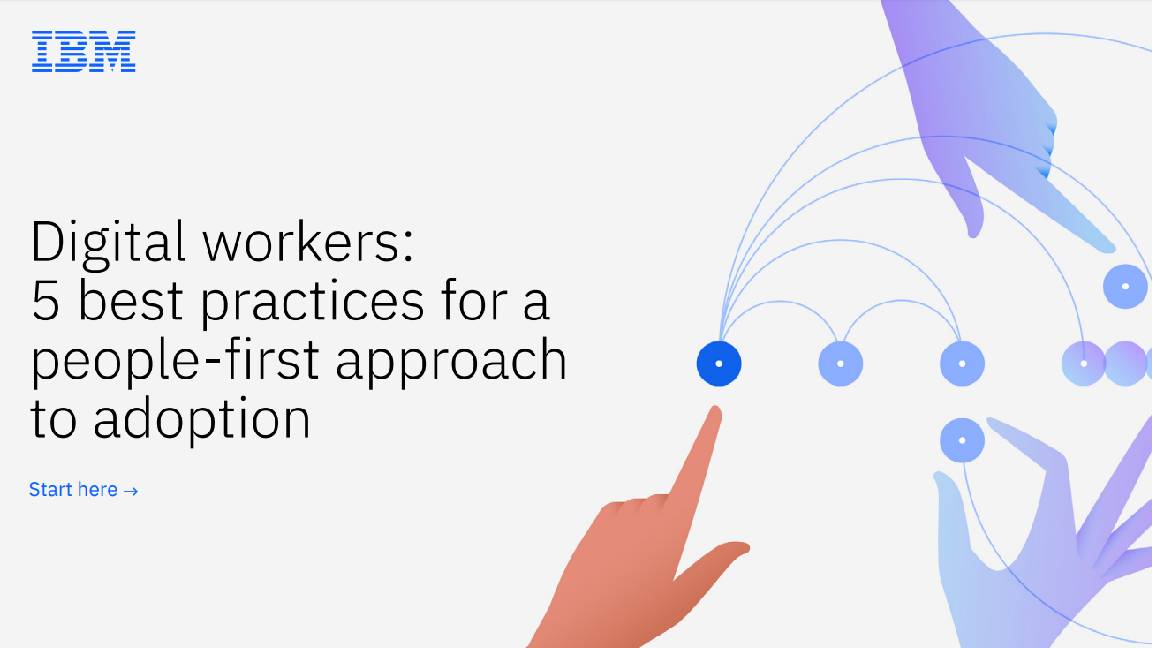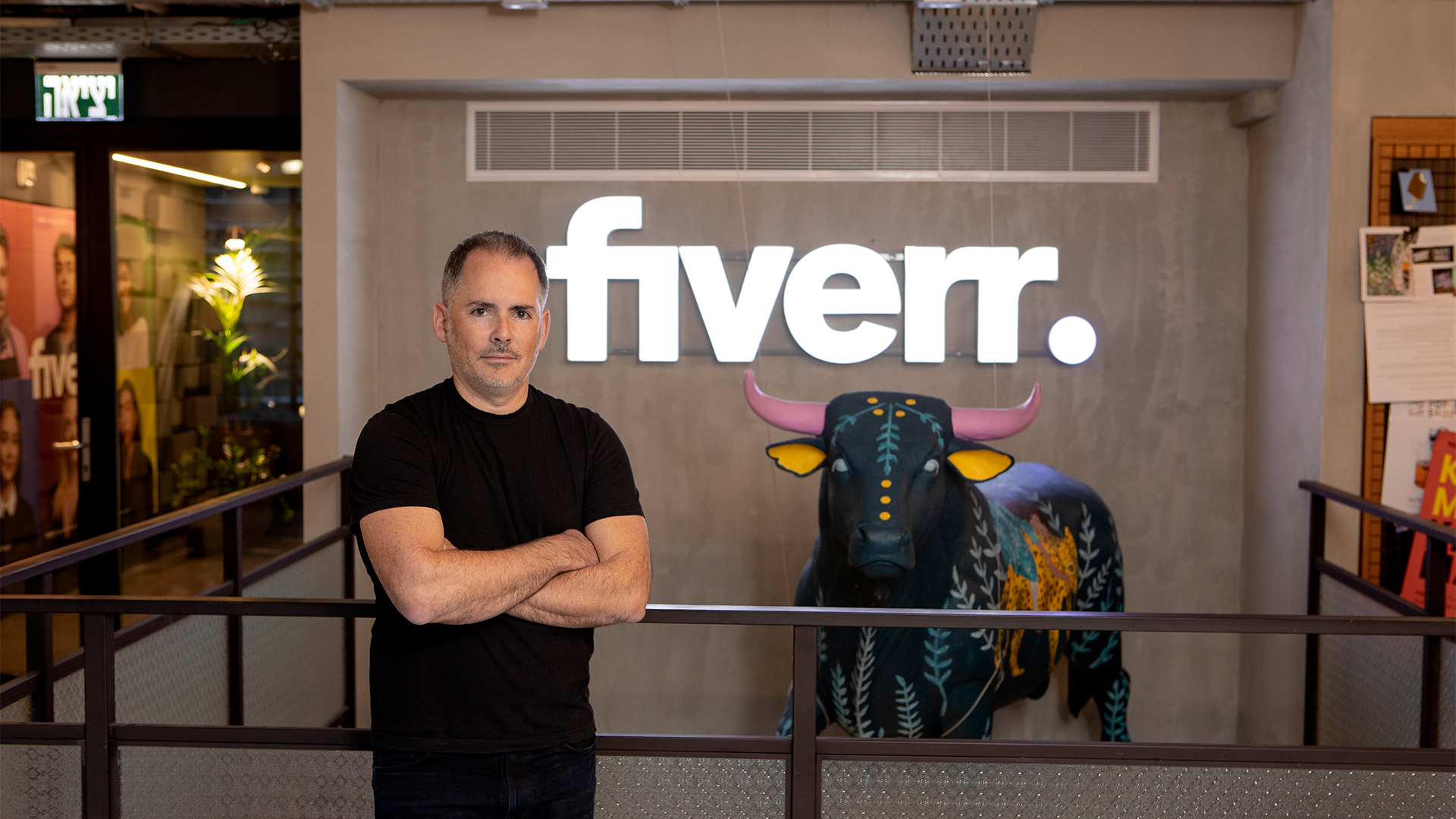AI skills training can't be left in the hands of big tech
Speakers at Turing's AI UK conference lay out challenges to AI skills readiness


The government must intervene in upskilling workers for the AI revolution, with industry experts warning it can't be left to industry alone.
That's the assessment offered by a panel of digital training experts speaking at AI UK, the annual conference held by the Alan Turing Institute.
The rise of AI has many concerned about the impact on jobs, suggesting a degree of retraining will be needed to help humans keep pace with the technology — or find a new role entirely. Those left behind without AI skills will be stuck in less well paying jobs, according to one report.
Beyond that, tech giants and governments alike are concerned about the lack of AI talent coming through the pipeline, with a shortage of skilled AI experts predicted to slow innovation — that's the motivation behind the UK's AI Action Plan, which aims to create 13,000 jobs in the industry.
But while meeting this expected demand will be a cross-sector challenge, David Crozier, director of the AI Collaboration Centre (AICC), noted that filling future gaps can’t be left to tech companies.
“Industry only supports it [training efforts] if they see commercial opportunity at the end of it,” he told attendees.
But there's more to AI than just productivity for companies, notes Tom Crick, Professor of Digital Education & Policy at Swansea University and the Chief Scientific Adviser (CSA) at the Department for Culture, Media and Sport. Beyond the economy, AI has a very clear social and cultural imperative.
Get the ITPro daily newsletter
Sign up today and you will receive a free copy of our Future Focus 2025 report - the leading guidance on AI, cybersecurity and other IT challenges as per 700+ senior executives
"The lens through which you view AI upskilling, for this to be responsible and ethical, and be citizen centered — is this of benefit to citizens and society, not just that it will help get a job or as an industry thing," he said.
"The pace of change is so quick, it really needs a nation wide or region wide intervention," added Crozier, comparing it — rather surprisingly — to sheep dipping, the process by which the animals are treated with pesticides to avoid the spread of parasites.
That said, the panelists agreed there was a role for companies to make use of micro-learning and offer life-long learning opportunities to enable employees to keep up. Liz Williams, the CEO of FutureDotNow, called for a cultural change in these topics, to centre them in our work lives.
Existing skills gap
Perhaps we shouldn't get ahead of ourselves. Williams noted that her organization's research suggests more than half of the UK workforce currently lack the essential 20 or so digital skills for work — and that's before AI comes into the picture.
"These are not advanced skills. Nine of the tasks are about online safety and security," she said, such as passwords. "People do not necessarily have those skills."
Williams noted that this applies across all demographics. One-in-two academics, for example, lacks one of 20 digital skills designated as necessary in the modern workforce, as do half of young people.
"It's a really ubiquitous issue," she said. "We assume people will acquire these skills through osmosis, but they won't. We need to help them acquire and maintain those skills."
Confused companies
It's not just individuals struggling to see how they will stay relevant amid a rise in AI in the workplace. Company leaders are unsure of how to best use AI, added Crozier.
Discussing company leaders who came to his organization for support, Crozier said they admitted they lacked the core skills needed to implement AI, let alone their staff.
"They didn't know what they needed to procure, a lot of the individuals we engaged with, their understanding of AI was pretty limited — they understand ChatGPT or Copilot, and they use it as a glorified Google."
RELATED WHITEPAPER

To help, Crozier said he's been trying to explain the broader underlying technologies, while asking them what specific problems they're trying to solve, while also addressing issues like costs and ROI.
"It's not just about basic AI literacy, the leadership in those organizations are crying out for advice and guidance and a bit more knowledge — and perhaps they're a little bit embarrassed about their lack of understanding."
MORE FROM ITPRO
- The AI skills gap is prompting a widespread rethink on workforce upskilling
- AI skills are the ticket to the best paid tech jobs in 2024
- The UK’s AI ambitions face one major hurdle – finding enough home-grown talent
Freelance journalist Nicole Kobie first started writing for ITPro in 2007, with bylines in New Scientist, Wired, PC Pro and many more.
Nicole the author of a book about the history of technology, The Long History of the Future.
-
 Bigger salaries, more burnout: Is the CISO role in crisis?
Bigger salaries, more burnout: Is the CISO role in crisis?In-depth CISOs are more stressed than ever before – but why is this and what can be done?
By Kate O'Flaherty Published
-
 Cheap cyber crime kits can be bought on the dark web for less than $25
Cheap cyber crime kits can be bought on the dark web for less than $25News Research from NordVPN shows phishing kits are now widely available on the dark web and via messaging apps like Telegram, and are often selling for less than $25.
By Emma Woollacott Published
-
 ‘AI is coming for your jobs. It’s coming for my job too’: Fiverr CEO urges staff to upskill or be left behind
‘AI is coming for your jobs. It’s coming for my job too’: Fiverr CEO urges staff to upskill or be left behindNews The latest in a string of AI skills warnings has urged staff to begin preparing for the worst
By Ross Kelly Published
-
 Anthropic ramps up European expansion with fresh hiring spree
Anthropic ramps up European expansion with fresh hiring spreeNews Anthropic has unveiled plans to further expand in Europe, adding 100 roles and picking a new EMEA head.
By Nicole Kobie Published
-
 How simplicity benefits the IT partner ecosystem
How simplicity benefits the IT partner ecosystemSponsored Content Across private cloud and AI adoption, simple approaches can unlock more time and money for IT teams
By ITPro Published
-
 IBM pledges support for UK government cyber skills program
IBM pledges support for UK government cyber skills programNews The CyberFirst Girls competition is aimed at increasing diversity in the cyber security workforce
By Emma Woollacott Published
-
 The role of AI and cloud in true digital transformation
The role of AI and cloud in true digital transformationSupported Content Both cloud computing and AI technologies are vital to pushing your business forward, and combining them in the right way can be transformative
By Keumars Afifi-Sabet Published
-
 Generative AI adoption is 'creating deep rifts' at enterprises: Execs are battling each other over poor ROI, IT teams are worn out, and workers are sabotaging AI strategies
Generative AI adoption is 'creating deep rifts' at enterprises: Execs are battling each other over poor ROI, IT teams are worn out, and workers are sabotaging AI strategiesNews Execs are battling each other over poor ROI, underperforming tools, and inter-departmental clashes
By Emma Woollacott Published
-
 ‘If you want to look like a flesh-bound chatbot, then by all means use an AI teleprompter’: Amazon banned candidates from using AI tools during interviews – here’s why you should never use them to secure a job
‘If you want to look like a flesh-bound chatbot, then by all means use an AI teleprompter’: Amazon banned candidates from using AI tools during interviews – here’s why you should never use them to secure a jobNews Amazon has banned the use of AI tools during the interview process – and it’s not the only major firm cracking down on the trend.
By George Fitzmaurice Published
-
 Starmer bets big on AI to unlock public sector savings
Starmer bets big on AI to unlock public sector savingsNews AI adoption could be a major boon for the UK and save taxpayers billions, according to prime minister Keir Starmer.
By George Fitzmaurice Published